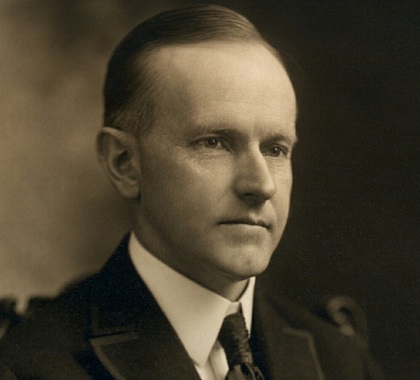Savvy shoppers will trek to the mall to take advantage of the myriad holiday sales. In recent years, President’s Day has become less about honoring the 44 men (Grover Cleveland served non-consecutive terms, making him the 22nd and 24th President of the United States) who have held the highest office in the land, and more about saving money on a new mattress.
President’s Day, originally established in 1879 as Washington’s Birthday, recognized the birth of George Washington on February 22, 1732. Until 1885, the federal holiday applied only to government offices in Washington. In 1885, Congress expanded the federal holiday to include all government offices.
In the early 1950s, the term “President’s Day” entered the American lexicon. By this time, the President’s Day National Committee began a campaign to remake the holiday into a celebration of all presidents.
In 1971, the Uniform Holiday Act shifted the date of Washington’s Birthday to the third Monday in February; hence Washington’s Birthday would never again fall on Washington’s actual day of birth. By the 1980s, the term President’s Day had become ubiquitous. Although still officially called Washington’s Birthday, the holiday has now become a day to recognize all those who have occupied the Oval Office.
In 2018, Americans are severely divided when it comes to the man residing in the White House. President Donald Trump has become a lightning rod, some Americans cheer him every step of the way, and others jeer his every move.
By no means is this a new phenomenon. Throughout American history, presidents have been bellwethers of partisan rancor. During this current period of division and strife, Americans ought to put aside their political differences and celebrate one of the less renowned, yet unquestionably exceptional presidents.
Unlike most modern presidents, Calvin Coolidge, known as “Silent Cal”, was not an outstanding orator. But what he lacked in the spoken word, he more than made up for in his values and ethics. In an article for the Foundation for Economic Education titled He Was a President Who Understood Principle, Jake Yonally, a high school student in Santa Barbara, California, tells the tale of a president who certainly deserves to be celebrated this President’s Day.
In his veto of a congressional salary increase, our 30th president, Calvin Coolidge, told Congress that, “No person was ever honored for what he received. Honor has been the reward for what he gave.” This statement truly characterizes Coolidge for who he was as a man.
Not only was he deeply concerned with tax reduction and the federal budget, he was also highly dedicated to the serving of both his neighbor and nation. Coolidge had a special understanding of public service and never swayed from his foundational beliefs. These qualities made him the beloved man that he was. Calvin Coolidge — although soft-spoken — showed immense amounts of courage in serving his nation and staying true to his fundamental convictions.
Economic Responsibility
An important way in which Calvin Coolidge showed this courage was in his approach to public service. Prior to his term as Commander-in-Chief, the government had grown unchecked for years under the Roosevelt, Taft, and Wilson administrations. Wealth redistribution, government regulation, and the strength of unions were on the rise in America during this era of progressivism. Soon after stepping into the Oval Office, Coolidge promptly went on a budget- and tax-cutting spree to abolish what he referred to as “Despotic Exactions.”
Although scoffed at by many, this decrease in taxation and government spending saved the average American over $200 per year (about $1,500 today). Coolidge wanted to help the poor, and he saw that this was the only way to enact true, long-term change toward raising the American standard of living. He and his Secretary of the Treasury, Andrew Mellon, referred to this policy as “Scientific Taxation.” Coolidge once said, “Collecting more taxes than is absolutely necessary is legalized robbery.” This informed approach was his creative service to the least of these.
It took an immense amount of courage on Coolidge’s part to abandon previous methods and take a new approach to public service. This new approach was both utilitarian and grounded in a strong respect for people’s basic human rights. Though unorthodox, his principled fiscal stewardship caused many poor Americans to succeed in achieving a better life. With the national debt being cut almost in half, the 17.5 percent increase in the nation’s wealth, and illiteracy being cut in half as well, his presidential term was a success by any standard.
Strong Principles
Although seemingly reserved, Coolidge was a man of strong principles. He called his fellow citizens to return to the proven principles of the American political tradition and encouraged them to examine their own beliefs in light of these principles. He believed strongly in the limits of social engineering, the nature of wealth, individual responsibility, and society’s dependence on moral and religious values. His ability to stand by these fundamental convictions in the face of adversity is rare among men.
In her book entitled Coolidge, Amity Shlaes refers to President Coolidge as our “Great Refrainer.” She suggests that inaction can benefit a nation more than action, as demonstrated by his numerous vetoed bills. “This was the boy with his finger in the dike, stopping a great progressive tide,” she accurately states. Throughout his life, Calvin Coolidge rejected what Bastiat called “legal plunder” and worked toward the creation not only of wealth but of beauty.
Calvin Coolidge’s messages regarding public service and his fundamental convictions have held true for almost a century. These firm principles were the groundwork for his ability to enact change for the better in America through public service. The way he thought determined the way he lived; his form followed his function. Calvin Coolidge lived by the principles that defined him. His belief system never aged. Even in the culturally diverse, globalized world we live in where people are desperate for new answers, ideas, and solutions, the simple social and moral code by which he lived remains as relevant as ever.
It is difficult to imagine how a modest man like Calvin Coolidge would preside in today’s sharply partisan and hyperbolic media environment. President Coolidge was a man of few words, but when he spoke, he spoke with wisdom and candor.
When describing his key to success, President Coolidge said, “Nothing in this world can take the place of persistence. Talent will not: nothing is more common than unsuccessful men with talent. Genius will not; unrewarded genius is almost a proverb. Education will not: the world is full of educated derelicts. Persistence and determination alone are omnipotent.” Almost one hundred years later, President Coolidge’s soft-spoken words ring louder than ever. This President’s Day, Americans ought to honor the legacy of President Coolidge by following his leadership style and sage advice.





